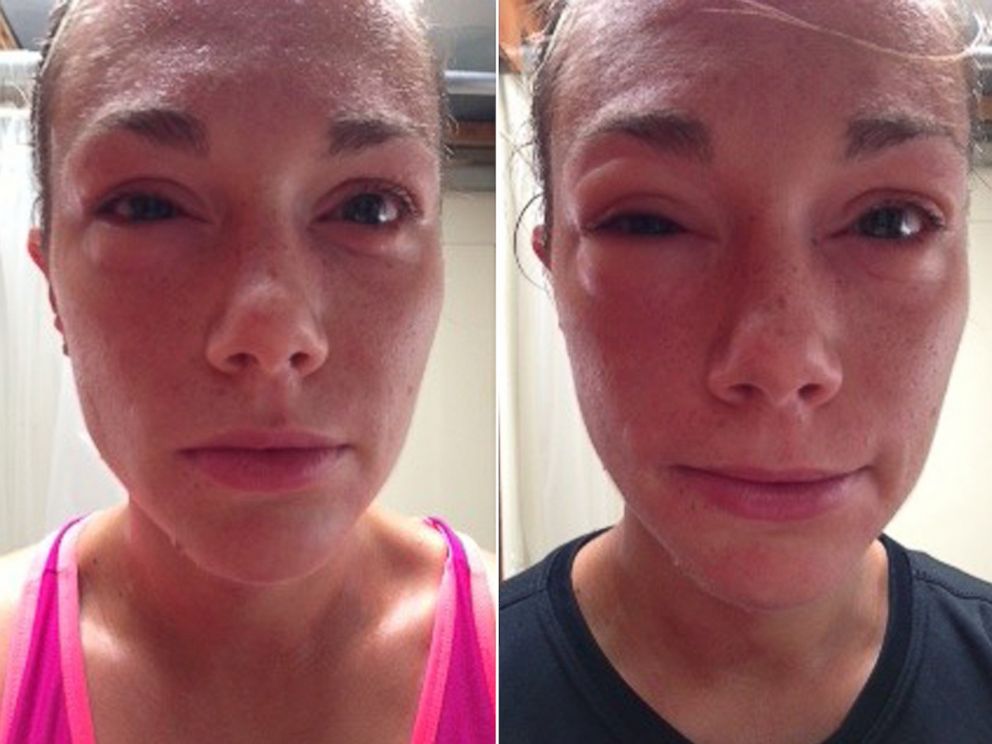Marathon Runner Won't Let Allergy to Exercise Hold Her Back
Allergy has sent runner into anaphylactic shock, causing eyes, throat to swell.
— -- Mary Johnson was on one of her regular runs last August when her eyes became itchy and her tongue started to swell. Soon, her body was covered in hives as her eyelids, lips and throat started to balloon, too.
It was happening again.
Johnson, 27, has what is called exercise-induced anaphylaxis -- a rare exercise allergy.
“My throat was so swollen that I had gone from having a normal-sounding voice ... to almost no voice at all in a matter of minutes,” Johnson wrote on her blog, itsamarython.tumblr.com. “In the past, my voice had always been intact.”
Her in-laws rushed her to the emergency room as her eyes became so swollen she could barely see. Once there, doctors injected her with epinephrine and discussed whether to intubate her to keep her airway open as her throat closed. She wound up staying in the intensive care unit overnight amid fears that she would have a second reaction.
Although Johnson is a marathoner who runs up to six times a week, she has had only three serious exercise allergy attacks in her life, each one worse than the last, she told ABC News. She also has the occasional “mini-attack” with just a tingly mouth and some swelling that she can treat herself with some Benadryl at home, she said.
The first one happened when she was 18 and went out for a morning run before breakfast. Because she hadn’t eaten anything and didn’t test positive for any food allergies, doctors eventually diagnosed her with exercise-induced anaphylaxis.

Dr. Kent Knauer, an allergist at UH Case Medical Center in Cleveland, said exercise-induced anaphylaxis is so rare that what exactly triggers it is unknown. He's never met Johnson, and said he's seen only four or five cases in his 25-year career.
Some exercise-induced anaphylaxis cases are tied to food, Knauer said. Others, like Johnson's, are not. He said he had one patient who only had an allergic reaction if she ate corn a few hours before exercising.
"In her case, if she eats corn, it's no problem. If she exercises, it's no problem," he said. "If she eats corn within one or two hours of exercise, she has a mild form of anaphylaxis."
Johnson said she has met a few other people with exercise-induced anaphylaxis, and that she considers herself lucky not to have more frequent attacks. But her attacks are more severe than those of other people she knows with the allergy.
Although Johnson’s been told to consider slowing down from time to time, she said she loves to run. And she’s good at it. She qualified for the Boston Marathon in 2013 and ran it in 3 hours, 8 minutes and 34 seconds. That’s a 7-minute-and-12-second mile! And when she runs a half marathon, she can run a mile in 6 minutes and 45 seconds.
Still, she said, her allergy requires her to be extra careful. She never runs too far from home, always knows where her epinephrine pen is, and never leaves for a run without telling someone where she’s going. Although she’s had three serious attacks, she reminds herself that she has had hundreds of workouts over the years with no attacks at all.
“Don’t let it shape who you are,” she said.





